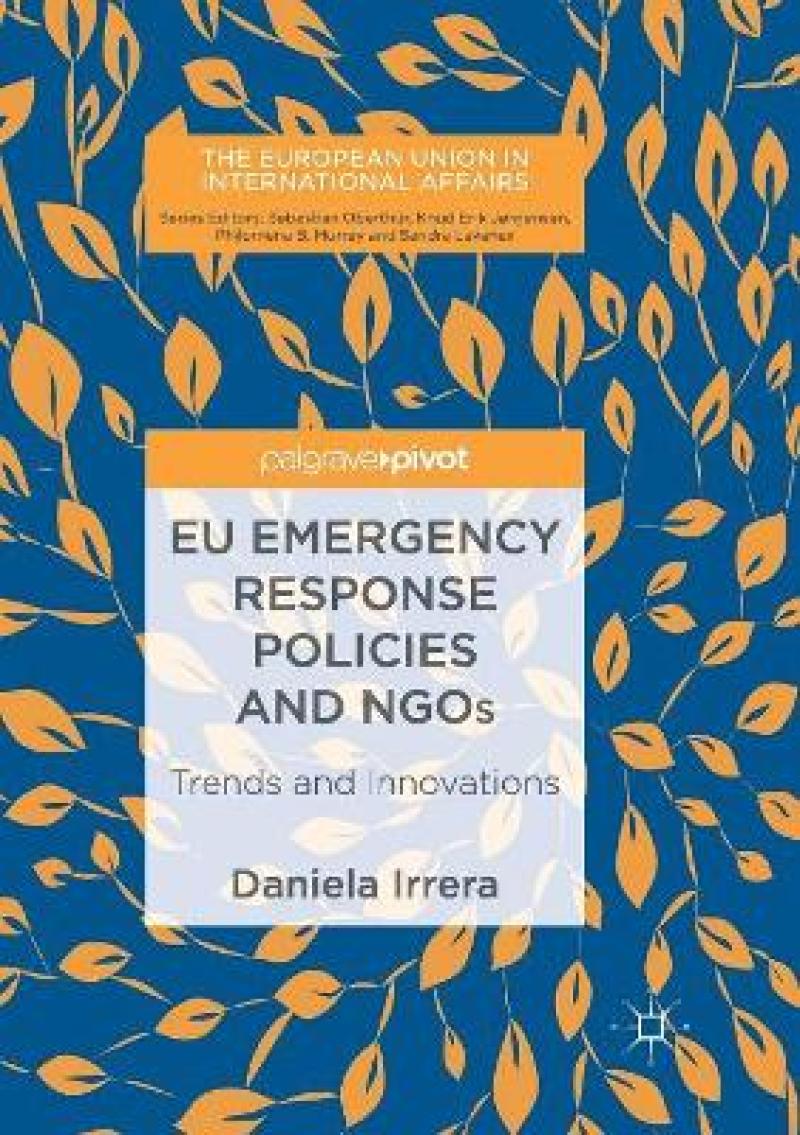This book analyses trends and changes in the European Union’s (EU) humanitarian aid policy, by focusing on the performance of Non-governmental Organisations (NGOs). NGOs have developed strong relationships with international institutions but have also maintained direct interaction with EU member states. The result is a multi-layered process in which national interests, common values, universal principles and global duties meet and interact. By combining a deepening of the theoretical debate with the use of empirical data on the funding of NGO projects by EU institutions and member states, the book significantly furthers our understanding of the complex relationship between these actors. It will appeal to students and scholars interested in EU politics, global security, and international aid, as well as practitioners in the humanitarian field.
Chapter 1. Introduction - EU emergency response policies and NGOs: why it matters.- Chapter 2. The humanitarian system, the EU and NGOs: the state of the art.- Chapter 3. The EU emergency response and NGOs: a theoretical overview.- Chapter. 4 NGOs, ECHO, and Member States: an empirical analysis.- Chapter 5. Conclusions - The EU humanitarian aid policy in the age of change.
This book analyses trends and changes in the European Union’s (EU) humanitarian aid policy, by focusing on the performance of Non-governmental Organisations (NGOs). NGOs have developed strong relationships with international institutions but have also maintained direct interaction with EU member states. The result is a multi-layered process in which national interests, common values, universal principles and global duties meet and interact. By combining a deepening of the theoretical debate with the use of empirical data on the funding of NGO projects by EU institutions and member states, the book significantly furthers our understanding of the complex relationship between these actors. It will appeal to students and scholars interested in EU politics, global security, and international aid, as well as practitioners in the humanitarian field.
“In this timely book, Daniela Irrera sheds light on the connection between NGOs and humanitarian strategies, right when the global environment seems threatened by risks which traditional state policy cannot fully cope with. The book is required reading for anybody who wants to understand EU external relations and helps to appreciate the true impact of Europe in the world, going beyond the simple account of formal institutions.” (Filippo Andreatta, University of Bologna, Italy)
Produktdetaljer
Biographical note
Daniela Irrera is Associate Professor of International Relations and Global Civil Society at the Department of Political and Social Sciences, University of Catania, Italy. She currently serves as President of the European Peace Research Association. A visiting scholar in several universities in Europe, USA, Asia and Canada, she has researched and published on the impact of non-state actors on global politics.
